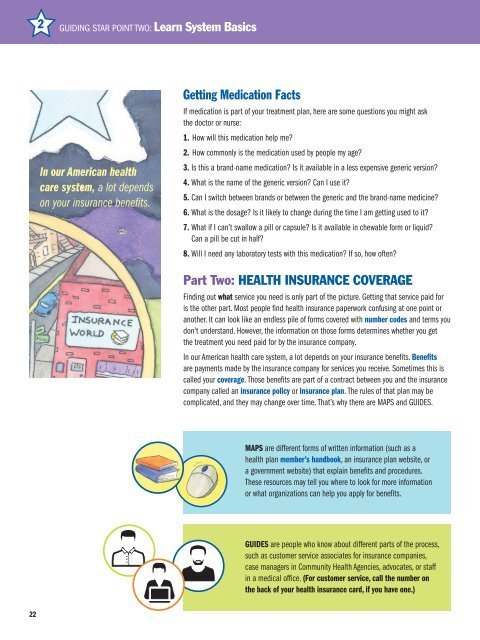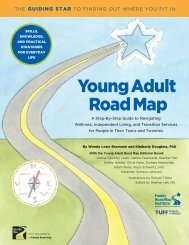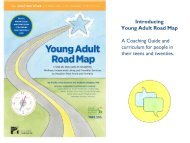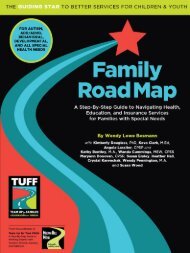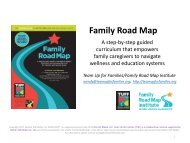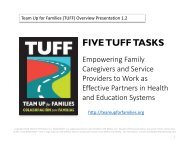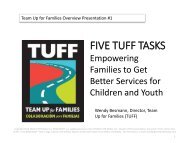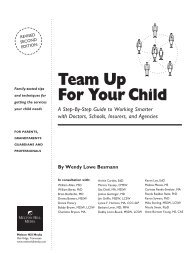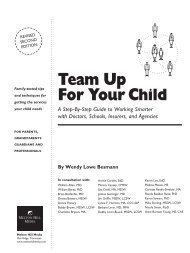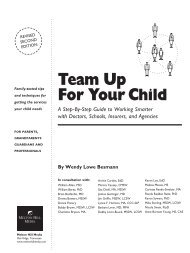Look Inside Young Adult Road Map
You also want an ePaper? Increase the reach of your titles
YUMPU automatically turns print PDFs into web optimized ePapers that Google loves.
2<br />
Guiding Star Point Two: Learn System Basics<br />
In our American health<br />
care system, a lot depends<br />
on your insurance benefits.<br />
Getting Medication Facts<br />
If medication is part of your treatment plan, here are some questions you might ask<br />
the doctor or nurse:<br />
1. How will this medication help me?<br />
2. How commonly is the medication used by people my age?<br />
3. Is this a brand-name medication? Is it available in a less expensive generic version?<br />
4. What is the name of the generic version? Can I use it?<br />
5. Can I switch between brands or between the generic and the brand-name medicine?<br />
6. What is the dosage? Is it likely to change during the time I am getting used to it?<br />
7. What if I can’t swallow a pill or capsule? Is it available in chewable form or liquid?<br />
Can a pill be cut in half?<br />
8. Will I need any laboratory tests with this medication? If so, how often?<br />
Part Two: Health Insurance Coverage<br />
Finding out what service you need is only part of the picture. Getting that service paid for<br />
is the other part. Most people find health insurance paperwork confusing at one point or<br />
another. It can look like an endless pile of forms covered with number codes and terms you<br />
don’t understand. However, the information on those forms determines whether you get<br />
the treatment you need paid for by the insurance company.<br />
In our American health care system, a lot depends on your insurance benefits. Benefits<br />
are payments made by the insurance company for services you receive. Sometimes this is<br />
called your coverage. Those benefits are part of a contract between you and the insurance<br />
company called an insurance policy or insurance plan. The rules of that plan may be<br />
complicated, and they may change over time. That’s why there are MAPS and GUIDES.<br />
MAPS are different forms of written information (such as a<br />
health plan member’s handbook, an insurance plan website, or<br />
a government website) that explain benefits and procedures.<br />
These resources may tell you where to look for more information<br />
or what organizations can help you apply for benefits.<br />
GUIDES are people who know about different parts of the process,<br />
such as customer service associates for insurance companies,<br />
case managers in Community Health Agencies, advocates, or staff<br />
in a medical office. (For customer service, call the number on<br />
the back of your health insurance card, if you have one.)<br />
22


